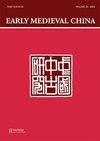Politicization of Ritual Matters: Debates on “Two Principal Wives” (Liangdi) in Early Medieval China
IF 0.3
4区 社会学
0 ASIAN STUDIES
引用次数: 0
Abstract
The tumultuous political environment of early medieval China gave rise to a social phenomenon known as liangdi 兩嫡, a situation in which a man kept two principal wives. This anomaly caused a great deal of confusion not only in terms of inheritance of title, rank, and property for the sons born of the two wives, but more importantly, in mourning observances by the sons for their mothers. To provide guidance for those involved in such situations, many discussions and debates around liangdi cases took place, both publicly among officials in courts and privately between colleagues and friends. This article, through analyzing four recorded discussions and debates on liangdi cases from the Jin dynasty (265–420), examines how a private issue of having two wives, resulting from the geopolitical conditions of civil war and segregation following the disintegration of the Han empire, became a public matter that had a profound ritual and political significance. At the heart of the politicization of ritual matters was the question of the political legitimacy of a newly unified empire.仪式事务的政治化:中世纪早期中国“两主妻”之争
中世纪早期中国动荡的政治环境催生了一种社会现象,称为“两弟”(liangdi),即一个男人有两个主要妻子。这种反常现象不仅在两位妻子所生的儿子对头衔、等级和财产的继承上造成了很大的混乱,更重要的是,在儿子对母亲的哀悼仪式上。为了给那些卷入这种情况的人提供指导,围绕“两地案”展开了许多讨论和辩论,既有法庭上的官员公开讨论,也有同事和朋友私下讨论。本文通过分析金朝(265-420)关于两弟案件的四次有记录的讨论和辩论,探讨了在汉朝解体后,由于内战和种族隔离的地缘政治条件,有两个妻子的私人问题是如何成为具有深刻仪式和政治意义的公共问题的。仪式问题政治化的核心是一个新统一帝国的政治合法性问题。
本文章由计算机程序翻译,如有差异,请以英文原文为准。
求助全文
约1分钟内获得全文
求助全文

 求助内容:
求助内容: 应助结果提醒方式:
应助结果提醒方式:


